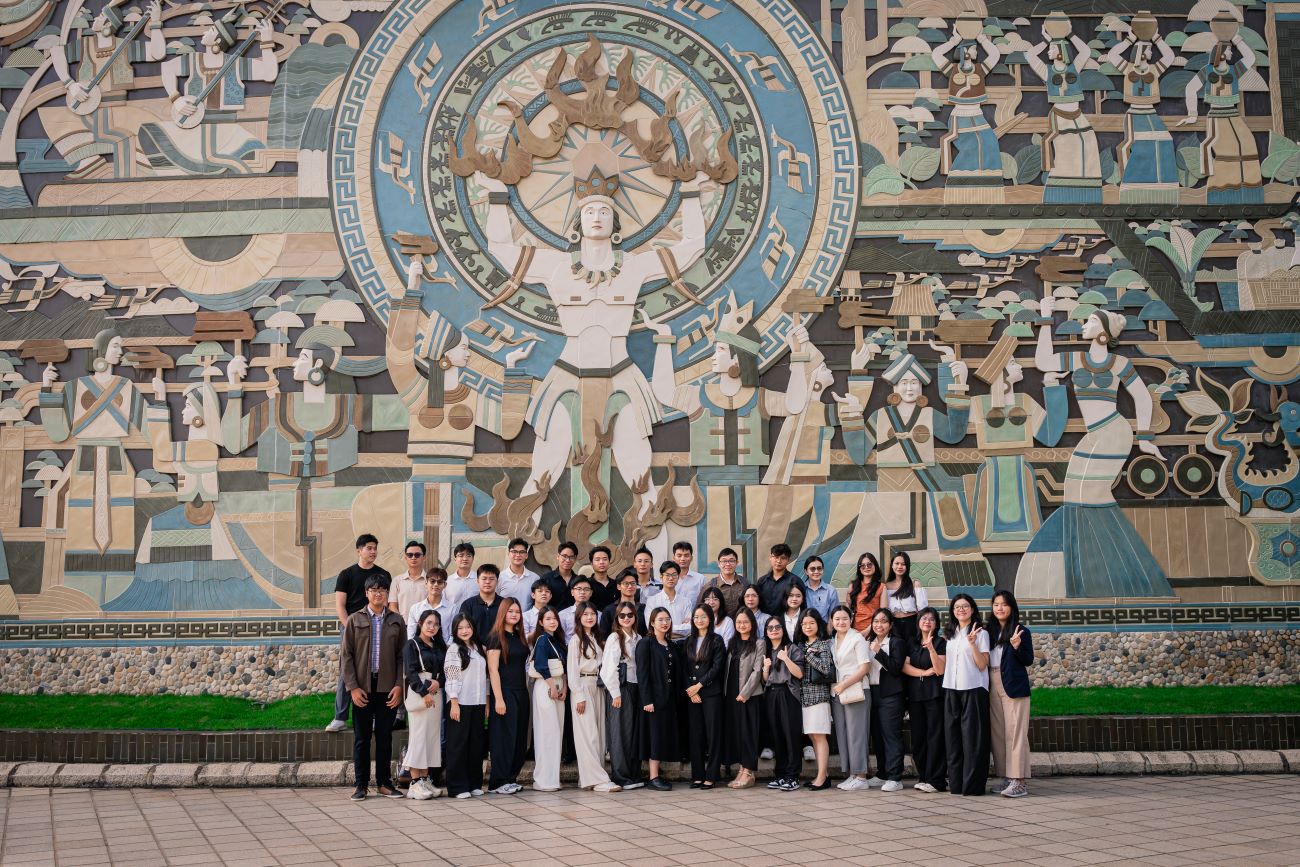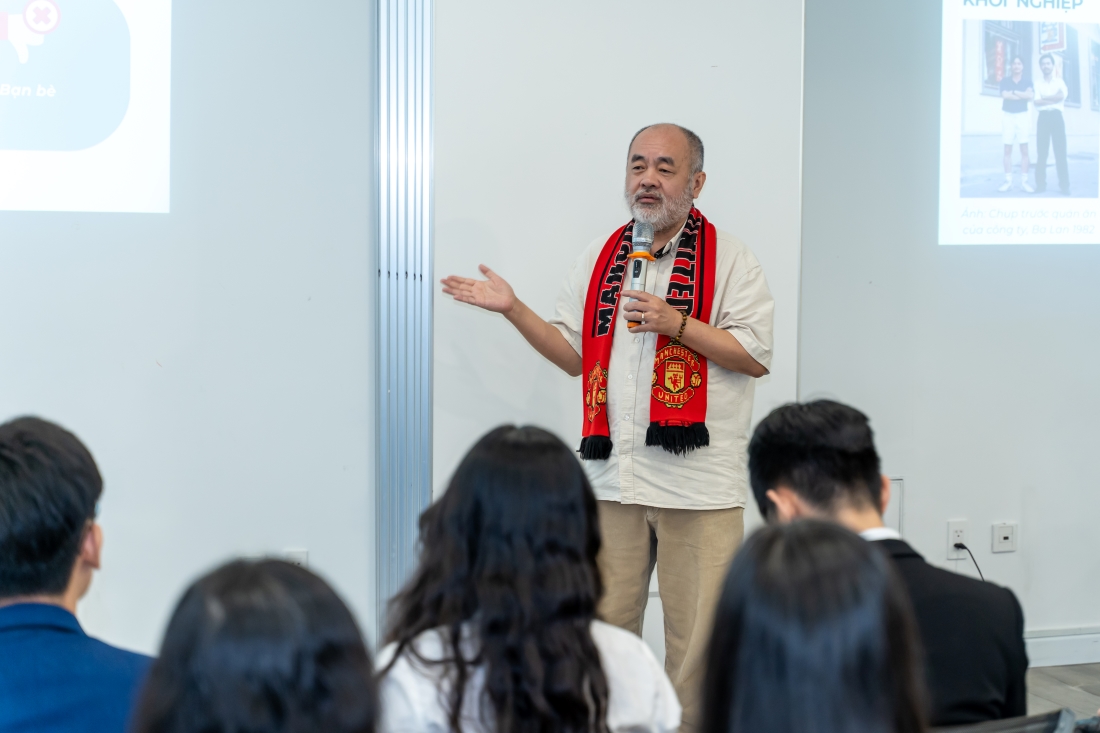Shark Tank Forum 7 – What Competitive Advantages for Startups?
Shark Tank Forum 7 took place with a series of inspiring panel discussions. It was a valuable experience that sparked entrepreneurial spirit and delivered business inspiration to students in the LQT Bachelor of Business program.
An Impressive Lineup of Speakers at Shark Tank Forum 7
The panel discussion titled “What Competitive Advantages for Startups?” featured prominent and reputable figures in Vietnam’s business landscape:
- Mr. Lý Quí Trung – President of the LQT Institute of Contemporary Entrepreneurs, Adjunct Professor at Western Sydney University
- Mr. Lâm Minh Chánh – Chairman of BizUni, Co-founder of the Management & Entrepreneurship Group
- Ms. Lê Mỹ Nga – Chairwoman of WeAngels Capital Fund
- Mr. Nguyễn Trần Quang – CEO of FutureOne Consulting
- Mr. Lý Đình Quân – CEO of the Song Han Incubator, Vice Chairman of the National Innovation and Startup Advisory Board
At Shark Tank Forum 7, aspiring young entrepreneurs had the opportunity to engage directly with seasoned “Sharks” – experienced investors and top-tier speakers. Students listened to insightful sharing and participated in discussions, gaining diverse perspectives on entrepreneurship, innovation, and building competitive advantages in business.

Panel 4: “What Competitive Advantages for Startups?”
The participation of Dr. Lý Quí Trung in Panel 4 brought valuable and in-depth insights. He addressed the key question: “How can startups enhance their competitive edge?”, drawing from real-world perspectives and his extensive experience.
Two Key Factors to Strengthen Startup Competitiveness
1. Humanizing the Brand
Dr. Trung emphasized that in the age of rapid technological advancement, the human element not only retains its value but becomes even more crucial. Entrepreneurs, founders, and their teams must blend technological literacy with soft skills. While AI can handle data processing and streamline operations, only humans bring empathy, creativity, and emotional connection to the customer experience.
A startup can become highly competitive by mastering “story-selling” – turning its brand story into an emotional, memorable experience for customers. This requires sincerity and the ability to humanize – transforming abstract, technical elements into meaningful narratives tied closely to the brand identity.
2. Harnessing Focus with the 80/20 Principle
Also known as the Pareto Principle, the 80/20 rule was introduced by Italian economist Vilfredo Pareto in the late 19th century. It states that 80% of outcomes typically stem from 20% of causes – meaning that core elements usually drive most value or impact.
In business, this principle is widely applied – from identifying high-value customer segments to optimizing product lines and operational processes. For startups with limited resources, focusing on core strengths is essential for maximizing impact.

Dr. Trung illustrated this with the well-known story of Steve Jobs’ return to Apple, when he cut 80% of the company’s product lines to focus entirely on core products like the iPhone, iPod, and iPad. This strategic focus simplified operations, improved efficiency, and reshaped Apple’s brand – becoming a turning point that propelled Apple to become one of the most valuable companies in the world.
He emphasized: “For startups, identifying the right 20% of core value can bring 80% of the success. That may be a breakthrough product, a promising market niche, or a loyal customer segment. Rather than chasing too many objectives, startups must concentrate their resources on strengths and fully exploit that potential.”
Therefore, the success or failure of a startup depends on its ability to effectively combine the human element with a strong focus on core value. A team equipped with flexible skills, creativity, and technological proficiency can help optimize operations. At the same time, concentrating resources on key areas enables the business to build a sustainable competitive advantage and generate long-term value.
In today’s fiercely competitive business world, these two factors serve as the foundation for success — a “guiding compass” that helps new ventures maintain their position and achieve sustainable growth.

Conclusion
Ultimately, a startup’s success hinges on effectively combining the human factor with a sharp focus on core value. A flexible, creative workforce capable of using technology will optimize operations, while allocating resources to key areas builds sustainable competitive advantage and long-term value.
The presence of WSU-LQT Bachelor of Business students at Shark Tank Forum 7 highlighted the program’s emphasis on practical learning. It also offered students a valuable opportunity to broaden their mindset, develop essential soft skills, and get ready for their future entrepreneurial journeys.
 Tiếng Việt
Tiếng Việt English
English



